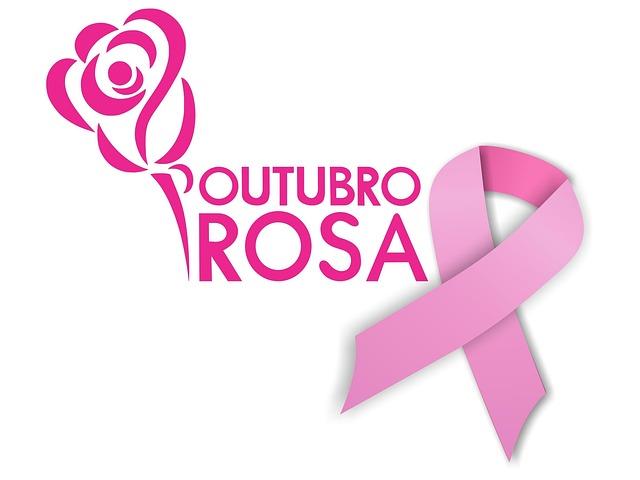Introduction
As the global fight against cancer intensifies, detailed national profiles are crucial for understanding the unique challenges and progress faced by individual countries. The upcoming “EU Country Cancer Profile: Slovenia 2025” report, produced by the Organisation for Economic Co-operation and Development (OECD), aims to provide a comprehensive overview of Slovenia’s cancer landscape. This insightful document not only charts the incidence and mortality rates of various types of cancer but also evaluates the efficacy of the Slovenian healthcare system in addressing these challenges. With an emphasis on prevention, early detection, and innovative treatment strategies, the profile will serve as a vital resource for policymakers, healthcare professionals, and researchers alike. As Slovenia continues to navigate the evolving realm of oncology, this report offers an essential snapshot of the current state of cancer care and the ongoing efforts to improve outcomes for patients across the nation.
Current Cancer Landscape in Slovenia: Trends and Statistics
Slovenia’s battle against cancer is shaped by evolving trends and increasing awareness, influencing both detection and treatment strategies. According to the latest OECD data, the country has observed a steady rise in cancer incidence rates, notably for malignancies such as breast, prostate, and lung cancer. Key statistics indicate that approximately 25,000 new cancer cases are diagnosed annually, with a notable increase in survival rates attributed to advancements in early detection methods and treatment protocols. Factors contributing to these trends encompass demographic shifts, lifestyle changes, and enhanced healthcare access.
Looking at the distribution of cancer types, it is indeed evident that certain forms are more prevalent than others. The following highlights provide insights into various cancer statistics in Slovenia:
- Breast Cancer: Most common among women, accounting for nearly 25% of new cases.
- Prostate cancer: The leading cancer type among men, comprising about 20% of total diagnoses.
- Lung Cancer: Continuously high incidence rates, particularly among smokers.
Furthermore, a collaborative effort between government and healthcare professionals aims to reduce the cancer burden. A comprehensive cancer control program focusing on prevention, early detection, and treatment is currently underway. the table below showcases the 2025 projections for cancer mortality rates in Slovenia, emphasizing the ongoing challenges:
| Cancer Type | 2025 Projected Mortality Rate (per 100,000) |
|---|---|
| Breast Cancer | 22 |
| Prostate cancer | 18 |
| Lung Cancer | 32 |
As Slovenia navigates these evolving statistics and trends, the emphasis on research, public awareness campaigns, and healthcare resource allocation remains crucial to combat cancer effectively and enhance the quality of life for patients and their families.

Key Challenges in Cancer Prevention and treatment in Slovenia
Despite advancements in healthcare, Slovenia faces several significant obstacles in the realm of cancer prevention and treatment.One of the primary challenges is limited access to timely screening and diagnostic services, particularly in rural areas where resources are scarce.This disparity in access can lead to late-stage diagnoses, which considerably affect treatment efficacy and patient outcomes. Furthermore, the country grapples with insufficient public awareness campaigns, which are crucial for educating the population about risk factors, preventive measures, and early signs of cancer.
In addition to awareness and access, Slovenia’s healthcare system confronts challenges related to affordability and availability of modern treatments. This is compounded by an increasing burden of cancer cases, which strains the existing healthcare infrastructure. Many patients experience delays in receiving necesary treatment, frequently enough due to bureaucratic hurdles or insufficient funding for newer therapies. To effectively tackle these issues, Slovenia must focus on enhancing healthcare policies, fostering research collaborations, and boosting investments in cancer research and patient support programs to ensure comprehensive care for all citizens.

Impact of Healthcare Policy on Cancer Outcomes in Slovenia
The healthcare policy landscape in Slovenia plays a crucial role in shaping cancer outcomes across the nation. The government’s commitment to providing equitable access to healthcare services, including early detection and treatment options, has significant implications for patient prognosis. Key factors influencing cancer management and outcomes include:
- Comprehensive screening programs aimed at early detection, which can significantly increase survival rates.
- Investment in innovative treatments and advanced technologies, improving the efficacy of cancer therapies.
- public health initiatives focused on cancer prevention through lifestyle changes, such as smoking cessation and dietary education.
Additionally,Slovenia’s integration with European Union health policies has fostered collaboration with various stakeholders,allowing for the exchange of best practices and the implementation of evidence-based interventions. This strategic alignment has resulted in improved healthcare funding mechanisms and enhanced research opportunities in oncology. The following table highlights the relationship between recent healthcare reforms and their corresponding impact on cancer outcomes:
| Healthcare Reform | Impact on cancer Outcomes |
|---|---|
| Enhanced Screening Programs | Increased early-stage diagnoses |
| Access to Targeted Therapies | higher treatment success rates |
| Public Awareness Campaigns | Improved prevention and lifestyle changes |

Innovative Approaches to Cancer Care: Case Studies from Slovenia
Slovenia is at the forefront of revolutionizing cancer care through several innovative initiatives that serve as examples for other countries. These approaches focus on integrated care models, harnessing advanced technology to enhance patient experiences and outcomes. Notably, the Digital Health Platform has streamlined patient data management, allowing for real-time access to medical records and treatment plans. This platform not only fosters better communication among healthcare providers but also empowers patients to take an active role in their care journey, ensuring a more personalized treatment experience.
Additionally, Slovenia has implemented a series of community outreach programs aimed at improving early detection rates of cancer. By establishing mobile screening units and conducting awareness campaigns in underserved areas, the country aims to tackle disparities in health access. These efforts have resulted in a significant increase in participation rates for screening programs, particularly among high-risk demographics. The combination of technology-driven solutions and community engagement has proven effective, and preliminary data suggests that these strategies lead to better survival rates and improved quality of life for cancer patients in Slovenia.

Strategic Recommendations for enhancing Cancer Care in Slovenia
To elevate the standard of cancer care in Slovenia, a multi-faceted approach is imperative. Firstly, enhancing early detection capabilities through public awareness campaigns and screening programs will play a pivotal role in improving patient outcomes.It’s essential to integrate telehealth services to facilitate remote consultations, particularly in rural areas where access to specialized care may be limited. Strengthening the cooperation among healthcare providers, including oncologists, primary care physicians, and nurses, is crucial to foster a holistic approach to cancer treatment and management.
Investment in advanced technologies and research initiatives will also significantly enhance the quality of care. by establishing collaborative partnerships between universities and healthcare institutions, Slovenia can drive innovation in cancer treatments and explore personalized medicine options tailored to individual patient needs. Moreover, improving the availability of clinical trials and ensuring that patients are informed about their options can lead to better treatment pathways. A focus on multidisciplinary care teams will ensure that patients receive comprehensive management throughout their cancer journey.

Looking Ahead: The future of Cancer Management in Slovenia and Beyond
As Slovenia positions itself for a transformative approach in cancer management, the integration of cutting-edge technologies and collaborative frameworks will be pivotal. The upcoming years are expected to see a robust emphasis on personalized medicine, where treatments are tailored to the genetic makeup of individual patients. This is not just about improving outcomes; it is about enhancing the quality of life for cancer patients through less aggressive therapies and reducing the overall burden on healthcare systems. Key components of this strategy will include:
- Investment in biomedical research to uncover new therapeutic targets.
- Expansion of screening programs to ensure early detection across diverse populations.
- Enhanced training for healthcare professionals in emerging technologies and treatment protocols.
Moreover, Slovenia aims to foster international partnerships to exchange knowledge and best practices in oncology care. By participating actively in European-wide initiatives, Slovenia can harness the power of collective expertise and resources. The focus will also be on establishing patient-centric care models that prioritize not only treatment efficacy but also patient experience and support. Recent studies have highlighted the significance of incorporating psychosocial support and rehabilitative services into cancer care, indicating a shift towards a more holistic approach.A detailed overview of anticipated key developments includes:
| Development | Expected Impact |
|---|---|
| Genomic profiling technology | Targeted, effective treatment regimens |
| Telemedicine integration | Enhanced access and convenience for patients |
| Collaborative oncology networks | Shared resources and expertise |
In Summary
Slovenia’s commitment to improving cancer care and prevention is underscored by the insights drawn from the OECD’s Country Cancer Profile. As the nation prepares to tackle the challenges posed by this pressing health issue, the strategic initiatives outlined highlight a proactive approach to enhancing early detection, treatment accessibility, and patient support. With a resilient healthcare system and a growing emphasis on research and innovation, Slovenia is poised to make significant strides in reducing the cancer burden by 2025. Continued investment in public health measures, alongside collaboration with international organizations, will be crucial in ensuring that Slovenia not only meets but exceeds its cancer care objectives. As we move forward, the data serves as both a road map and a call to action for stakeholders committed to fostering a healthier future for all Slovenians.













